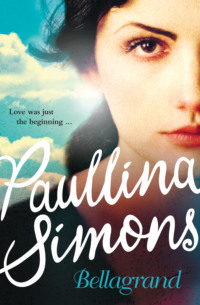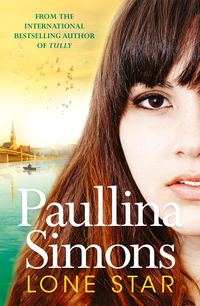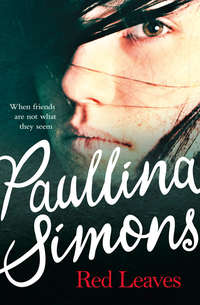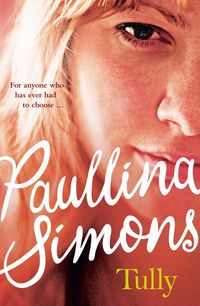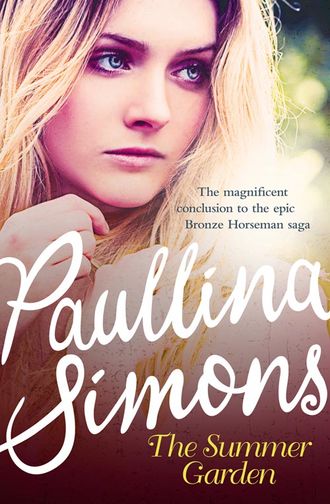
Полная версия
The Summer Garden
“Babe, if I play with you any more, my sword will fall off.”
“What sword, Dad?”
“Anthony, shh. Alexander, shh. Look, I don’t want you to fall asleep at nine in the evening. I want you to smoke and drink. I want you to read all the books and magazines you haven’t read, and listen to the radio, and play baseball and basketball and football. I want you to teach Anthony how to fish as you tell him your war stories.”
“Won’t be telling those any time soon.”
“I’ll cook for you. I’ll play dominoes with you.”
“Definitely no dominoes.”
“I’ll let you figure out how I always win.” A Sarah Bernhardt-worthy performance.
Shaking his head, he said slowly, “Maybe poker.”
“Absolutely. Cheating poker then.”
Rueful Russian Lazarevo smiles passed their faces.
“I’ll take care of you,” she whispered, the hand he wasn’t holding shaking under the table.
“For God’s sake, Tania … I’m a man. I can’t not work.”
“You’ve never stopped your whole life. Come on. Stop running with me.” The irony in that made her tremble and she hoped he wouldn’t notice. “Let me take care of you,” Tatiana said hoarsely, “like you know I ache to. Let me do for you. Like I’m your nurse at the Morozovo critical care ward. Please.” Tears came to her eyes. She said quickly, “When there’s no more money, you can work again. But for now … let’s leave here. I know just the place.” Her smile was so pathetic. “Out of my stony griefs, Bethel I’ll raise,” she whispered.
Alexander was silently contemplating her, puzzled again, troubled again.
“I honestly don’t understand,” he said. “I thought you liked it here.”
“I like you more.”
CHAPTER FIVE
Bethel Island, 1948
Tilting at Windmills
They said farewell to the bittersweet sickly heady scent of ripened effervescent grapes, got into their Nomad and left. Tatiana navigated them south and east of Vianza to lose themselves in the flatness of a thousand square miles of the California Delta, amid the islands that were so close to sea level, some would get flooded every time it rained. A hundred miles from the valley of the wine, at the mouth of the Sacramento and San Joaquin Rivers, they found tiny Bethel Island and that’s where they stopped.
Bethel Island. Surrounded by river channels, levees, and antediluvian marsh. Nothing moved in any direction except the herons. The canals were made of glass. The cold November air was still as if it were about to storm.
It didn’t even seem like part of the same country, yet unmistakably was America. On Dutch Slough they rented a wood shack with a long L-shaped dock that jutted out onto the canal. The house had what they needed. A room of their own, and a bathroom. Across the canal was nothing but plains of fields and the horizon.
“Looks like Holland,” Alexander said as they unpacked.
“Would you like to go to Holland someday?” she asked, busy nesting.
“I’m never under any circumstances leaving America. How did you find this place?”
“Looked at a map.”
“So now you’re a cartographer, too?” Alexander grinned. “Would you like a glass of wine, my little geologist, capitalist, cartographer?” He had brought a case of bubbly with them.
The next day at precisely eight in the morning, the mailman on a passing boat barge hooted his horn into their bedroom window. Introducing himself as Mr. Shpeckel, he asked if they would be getting any mail. They said no. But perhaps Aunt Esther wanted to send Anthony a Christmas present? Tatiana said no. They would call Esther at Christmas; that would have to be good enough.
Even though there was going to be no mail, Shpeckel still came by every morning at eight, tooting his horn into their windows just to let them know they had no mail—and to say hello to Alexander, who in his usual military manner was already up, washed and brushed and dressed, and out on the deck with a fishing line. The canals harbored prehistoric sturgeon and Alexander was trying to catch one.
Shpeckel was a 66-year-old man who had lived in Bethel for twenty years. He knew everyone. He knew their business, he knew what they were doing on his island. Some were lifers like him, some vacationers, and some were runners.
“How do you know which are which?” asked Alexander one afternoon when Shpeckel was done with his water route. Alexander had invited him in for a drink.
“Oh, you can always tell,” Shpeckel replied.
“So which ones are we?” Alexander asked, pouring him a glass of vodka, which Shpeckel had admitted to never having before.
They clinked and drank. Alexander knocked his back. Shpeckel carefully sipped his like a mug of tea.
“You are runners,” said Shpeckel, finally downing his and gasping. “Egads, man, I wouldn’t drink this stuff anymore. It’s going to set you on fire. Come to the Boathouse with us on Friday night. We drink good old beer there.”
Alexander politely declined. “But you’re wrong about us. Why do you say we’re runners? We’re not runners.”
Shpeckel shrugged. “Well, I’ve been wrong before. How long are you staying?”
“I have no idea. Not long, I think.”
“Where’s your wife?”
“Hunting and gathering,” he said. Tatiana had gone alone to the store to buy food. She always went alone, dismissing Alexander’s offers of help. “I didn’t catch any sturgeon today.”
There were other fish in the waters. Striped bass, black bass, catfish—and perch. The perch was a Russian fish—here all the way from the Kama River, Alexander thought with amusement as it trembled on his line. Tatiana didn’t mention the existence of Russian perch in American waters as she cleaned it and cooked it and served it. And Alexander didn’t mention that she didn’t mention it.
He did mention, however, what Shpeckel had said to him. “Imagine that, calling us runners. We’re the most rootlessly rooted people I know. We tool around, find a spot, then don’t move from it.”
“He is being silly,” she agreed.
“Did you get me a newspaper?”
Tatiana said she had forgotten. “But the Czech Foreign Minister Jan Masaryk was just killed in a ‘fall’ from his office window following the Communist coup in Prague.” She sighed.
“Now my gloomy wife is also a newscaster and a Czechophile. What’s your interest in Masaryk?”
Downtrodden, Tatiana said, “A long time ago, in 1938, Jan Masaryk was the only one who stood up for his country when Czechoslovakia was about to be handed over to Hitler on a plate. He was hated by the Soviets, while Herr Hitler was admired by everyone. Then Hitler took his country, and now the Soviets took his life.” She looked away. “And the world has stood on its head.”
“I wouldn’t know,” Alexander said. “We don’t even have a radio in the house. Did you get a radio as I asked? I can’t keep going outside into the Nomad.”
She forgot that, too.
“Did you get me Time magazine?”
“Tomorrow, darling. Today I got you some nice American books from the 19th century. The Wings of the Dove from Henry James, ghost stories from Poe and the complete works of Mark Twain. If you like something a little more current, here is the excellent The Everlasting Man from 1923.”
The isolation was complete on their last frontier. The house they were living in had a name—on a plaque. It was called Free. The dock they fished on was called My Prerogative. The skies remained gunmetal gray with no sunshine day after day, and the blue herons hid behind the reeds in the fields across the canal, and the swans flew away in lonely formations. The stillness as far as the eye could see was vertical and horizontal.
Well, perhaps not horizontal, for they had a room of their own and a case of sparkling wine.
They drifted through the winter like river rats in the lost world downstream from Suisun Bay.
One March morning in 1948, Shpeckel, with a salute, said after sounding his bugle, “I guess I was wrong about you and your wife, Captain. I’m surprised. Few women can live this life, day in and day out.”
“Well, you have to know who you are,” Alexander called back, a cigarette in his mouth and his fishing rod in the water. “And you don’t know my wife.”
And Tatiana, who heard the exchange from the window, thought that perhaps Alexander didn’t know his wife either.
The boy was remarkable. The boy was so dark haired, so dark eyed, growing so lean. He went on boats; now he was fearless. On Bethel Island, they taught him how to read, in English and Russian, how to play chess, cards, how to make bread. They bought bats and gloves and balls, and spent the cold days outside. The three of them went to the nearby field and in their winter jackets—because the temperature was in the forties—kicked a soccerball, threw a football, hit a baseball.
Anthony learned how to sing—in English and Russian. They bought him a guitar, and music books, and in the long winter afternoons, they taught him notes and chords and songs, and how to read the bass clef and the treble clef, the tones and the semitones. Soon he was teaching them.
And one afternoon, Tatiana, to her horror, watched Anthony change the magazine cartridge in his father’s Colt M1911 in six seconds.
“Alexander! Are you out of your mind?”
“Tania, soon he will be five.”
“Five, not twenty-five!”
“Did you see him?” Alexander was beaming. “Do you see what he is?”
“Do I ever. But you don’t want to be teaching him that.”
“I teach him what I know.”
“You’re not going to teach him everything you know, are you?”
“Oh, sauce in the winter! Come here.”
They hibernated, ate berries, slept, waiting for the ice to melt. Underneath Tatiana was mute. Even to herself she seemed disabled in her dread. For her son, for her husband, she put on her bravest face, but she feared it wasn’t brave enough.
Sitting next to each other, Alexander and Anthony had finished fishing; it was the end of a quiet day, before dinner, and their rods were down. Anthony climbed into Alexander’s lap and was touching the hair on his face.
“What, son?” He was smoking.
“Nothing,” Anthony said quietly. “Did you shave today?”
“Not today, not yesterday.” He couldn’t remember the last time he shaved.
Anthony rubbed Alexander’s face, then kissed his cheek. “When I grow up, am I going to have black stubble like you?”
“Unfortunately yes.”
“It’s so bristly. Why does Mommy always say how much she likes it?”
“Mommy sometimes likes strange things.” Alexander smiled.
“Am I going to be tall like you?”
“Sure, why not?”
“Big like you?”
“Well, you are my son.”
“Am I going to … be like you?” Anthony whispered.
Alexander took a careful look at the boy’s upturned blinkless gaze. Leaning down he kissed him. “Maybe, bud. You and only you will decide what kind of man you want to be.”
“Ticklish, like you?” Anthony pulled up his father’s flannel shirtsleeve and tickled his forearm and the inside of his elbow. He tickled him under the arms.
Alexander put the cigarette out. “Watch out,” he said, holding the boy to him, “because in a minute there’ll be no mercy for you.”
Anthony squealed, his arms around Alexander, whose arms were around Anthony. The chair was nearly falling over. Suddenly Anthony pressed his head to Alexander’s ear. “Daddy, don’t turn around, because this will frighten you, but Mommy is standing behind us.”
“Is Mommy looking particularly frightening this evening?”
“Yes. She’s crying. Don’t turn around, I said.”
“Hmm,” Alexander said. “What do you think it is?”
“I don’t know. Maybe she’s jealous we’re playing?”
“No,” said Alexander. “She is not a jealous mom.”
He whispered to Anthony, who nodded and slowly climbed down from his father. They both turned around to face her. She stood there blankly, her face still wet.
“One two three—go!” said Alexander. They ran, and she ran from them; they chased her into the house, and brought her down onto the carpet, and she was laughing and she was crying.
Alexander was sitting outside down the long dock, in his quilted patchwork winter jacket, smoking, fishing. He hadn’t shaved in weeks, and his hair had grown shaggy. Tatiana knew if she drew attention to it, ran her hands through it, looked at it too long, he might cut it. So she watched him from behind as he sat on his little chair, with a rod in the water and a cigarette in his mouth, humming. He was always humming when he was trying to catch that prehistoric sturgeon.
Tatiana couldn’t help herself. Wiping her face, she walked down the dock to his chair, pressed her face to his head, kissed his temple, his bearded cheek. “What’s this for?” he asked.
“Nothing,” she whispered. “I like your pirate beard.”
“Well, your Captain Morgan will be done soon. I’m trying to catch us a fish.”
“Don’t make me cry, Shura.”
“All right, Tania. You too. You with your kissing. What is it with you and the boy lately?”
She held his head to her, in the space at her neck. “Come inside, darling,” she whispered. “Let’s go in. Your bath is hot and ready.” Her lips were on his hair.
“It’s really grown out, hasn’t it?” he said absent-mindedly. But when he came back inside he didn’t cut it.
Later that night, in complete darkness, after a hot conjugal bath, after love, Alexander asked her, breathed out to her, “Babe, what are you so afraid of?”
Tatiana couldn’t tell him. “We’re hanging in there,” he said. “Ant’s doing great.”
“You shouldn’t have told me your dream,” Tatiana said dully. “That’s what I think about now—I’m awake and in Germany watching you being dragged away by Karolich.” She was glad it was dark and he couldn’t see her face. “What if this little life, us, is all just an illusion. And will soon be gone.”
“Yes,” was all he said.
Restlessly they slept, and then settled down again, to blessed silence.
Lost in Suisun Bay
“How long do you plan to keep me here?” It was spring, they had been in Bethel six months. She couldn’t stop herself from twitching. “Day in, day out, weeks, months, years? Tell me. Is this where we’re staying? Is this what I’m doing? Should I get Shpeckel’s job when he dies? Should I put in for it now, in case there’s a waiting list?”
“Shura.”
Alexander was contemplative. “Are you hiding me from myself? Are we here because you think I can’t function out there?”
“Of course not.”
“So why are you hiding me?”
“I’m not, darling.” Tatiana rubbed his back, feathered his scars. “You’re worrying yourself for nothing. Go to sleep.”
But Alexander wasn’t sleepy. “What? You can’t imagine me in an office?” he asked. “In a suit all day, sitting at a desk, selling stocks, bonds, insurance, going to visit you in a winery in my drab flannel suit, coming from my city office?”
She was all coiled up inside. “I can imagine you visiting me.”
“My father wanted me to be an architect,” Alexander said. “A fine thing—an architect in the Soviet Union. He wanted me to build with the Communists, bridges, roads, workers’ houses.”
“Yes.”
“And I spent my life blowing up fucking houses. Perhaps I can be in demolition work.”
“No, not you.” Please could it be the end of this conversation. “Don’t worry. You’ll figure it out.”
But Alexander continued. “Is that what I’m doing here? Figuring it out? Who I am? I spent my whole life asking myself this question. There in the Soviet Union, here in Suisun Bay. No easy answers to that one, me with SS Eagles, and hammer and sickles on my arms.”
You are an American, Alexander Barrington, Tatiana wanted to say to him. An American, who fought in the Red Army and married a Russian girl from Leningrad who can’t live without her soldier. That’s who you are.
“My mother and father knew who they were.”
It was the absolute last thing Tatiana wanted to talk about. Her body was a spring; in a minute she was going to catapult away from him.
“They have nothing to do with you,” she said, and couldn’t say anymore.
“The Communist and the radical feminist, the Soviet émigrés, oh, they knew who they were.” Alexander sat up and lit a cigarette. “You can only hope in today’s climate, no one will find out about my mother and father, because who then is going to give me permanent work? I might as well be a murderer out on work release.” He blew smoke rings above the bed.
Tatiana couldn’t endure it, she coiled away. “Jimmy hired you, Mel hired you, Sebastiani hired you …”
“Yes, until just one man says: what are the numbers on your arm, Alexander? and we’re off. I don’t know what happened back in Vianza, but something did because it was a slice of heaven, but we didn’t stay, did we? What are we going to do? Every time someone asks us a question, we run? Where in the army did you serve, Alexander? and we go right in the bunker, Tania? Is that how we’re going to live?”
Tatiana didn’t know how they were going to live. She didn’t know if they would ever get to have a normal life, like other people, like other married couples, simple, calm, small, nice. What was a normal life for the two of them? She didn’t know how long she could keep him remote in a bunker, in splendid isolation, secluded from all men.
Stepping Out For Love
Alexander wanted to see Idaho, Hell’s Canyon. He wanted to see Mount Rushmore, Yosemite, Mount Washington, Yellowstone National Park, the wheat fields of Iowa.
No, she kept saying, let’s stay here just a little longer. Weeks passed.
I’ll come to the store with you. Help you with shopping.
No, stay here, catch us a fish, Shura.
I’m going to go to the Boathouse, have a drink with the postman.
Let’s go to Sacramento on Sunday. Find a Catholic church, have brunch afterward at the Hyatt Regency, walk on Main Street, show Anthony the Capitol building, have ice cream.
I don’t want to. I have things to do. I have to wash-clean-cook-bake-peel-scale. I want you to build me a chest for my knick-knacks, a bench to sit on, fix the posts in the fence, planks on the dock. Let’s go for a boat ride on the canals instead.
Her reluctance to leave reminded him of wintry Deer Isle—it’s snowing and she is still not saying, let’s go. This is how it still was. Metaphorically snowing, and she was staying put.
He didn’t mind it in the beginning, this slowness. It left him alone with himself while he fished and listened to the call of the herons, and taught Anthony to row a boat and to play baseball and soccer, while Anthony read to him from his children’s books as Alexander held the fishing line. The soul was repairing itself little by little. And it was on Bethel Island, with his mother and father twenty-four hours by his side, watching over him, talking to him, playing with him, that Anthony stopped waking up with nightmares in the middle of the night and settled down to silence inside himself.
And it was on Bethel Island that Alexander stopped needing ice cold baths at three in the morning—the hot sudsy dimly lit baths with her soapy hands and soapy body in the late evening sufficing.
But eventually, one Sunday morning in July 1948, Alexander said, let’s go to Sacramento, and he wasn’t asking.
They went to Sacramento. They went to a Catholic mass and then had brunch at the Hyatt Regency.
In the late afternoon they were strolling down Main Street, window shopping, when a police car pulled up to the curb and out jumped two officers and ran toward—
For a second it was unclear what they were running toward, and in that second, Tatiana stepped out in front of Alexander, covering half of him with her small body. Paying no attention to the Barringtons, the police officers ran into the grocery store.
Tatiana stepped away. Alexander, after a double take, his eyes widening, continued to stare at her.
When they were having an ice cream soda at a drug store, he was sitting across from her, studying her, waiting for her to volunteer.
“Tania …” he drew out.
She was chatting to Ant, not meeting Alexander’s eye, volunteering nothing.
“Yes?”
“What was that back there?”
“What?”
“Back there, with the police.”
“I don’t know what you’re referring to. I stepped out of their way.” Still not looking at him.
“You didn’t step out of their way. You stepped out in front of me.”
“I had nowhere else to go.”
“No. You stepped in front of me, as if …” Alexander didn’t even know how to say it. His eyes narrowed, his heart narrowed, he saw something, understood a little bit, not much, but something. “Did you think they were coming for … me?”
“That’s silly.” Studying her soda. “Anthony, you want whipped cream?”
“Tania, why did you think they were coming for me?”
“I didn’t think so at all.” She tried to smile.
He took her face into his hands. She averted her gaze.
“You won’t look at me? Tania! What’s happening?”
“Nothing. Honest.”
He let go of her. His heart was doing odd things in his chest.
That evening Alexander found her in the back of the house—when she thought he was having a bath—cocking and recocking his P-38. She was grimly aiming it from the shoulder, her legs apart, holding it with both hands.
Alexander backed away, stumbled to the dock, sat in his chair, smoked. When he came back inside, he stood in front of her. She had put away his weapon. “Tania,” he said. “What the fuck is going on?”
His voice was too loud in the house, with Anthony just steps away in his bedroom.
“Nothing, nothing at all,” she said quietly. “Please, let’s just—”
“Are you going to tell me?”
“There is nothing to tell, honey.”
He grabbed his jacket and said he was going out. “By the way, you forgot to lock the magazine catch on the P-38,” he said coldly. “It’s at the bottom of the grip.” He left without giving Tatiana a chance to reply.
Alexander came home hours later. There was no food on the stove, and she was sitting stiff, like a board bent in the middle, at the little kitchen table.
She jumped up when he walked in the door. “My God! Where have you been? It’s been four hours!”
“Wherever I’ve been, I’d be coming home hungry,” was all he said.
She made him a cold chicken sandwich, heated up some soup while he stood silently near the stove. He took his plate and his cigarette outside. He thought for sure she would follow him out but she didn’t. After quickly eating he came back in the house, where she was still sitting behind the kitchen table.
“You don’t want to have this conversation in the house with Anthony,” Alexander said. “Come outside.”
“I’m not having this conversation.”
In two strides he was near her, pulling her up from the table.
“Okay, okay,” she whispered, before he even opened his mouth. “Okay.”
Outside on the deck Alexander stood before her in the growing darkness, silent but for the hushed rippling off the water, the distant rustle of trees from a small cool wind.
“Oh, Tatiana,” said Alexander. “What have you done?”
She said nothing.
“I called Aunt Esther,” he said. “She wasn’t an easy egg to crack. Then I called Vikki. I know everything.”
“You know everything,” she said without inflection, stepping away from him and shaking her head. “No. You know nothing.”
“I’ve been wondering why in two years you haven’t called your friend. Why you’re poring over maps. Why you’re shielding me from officers of law. Why you’re practicing with my weapon.” Alexander spoke low and pained. “Now I know.”



